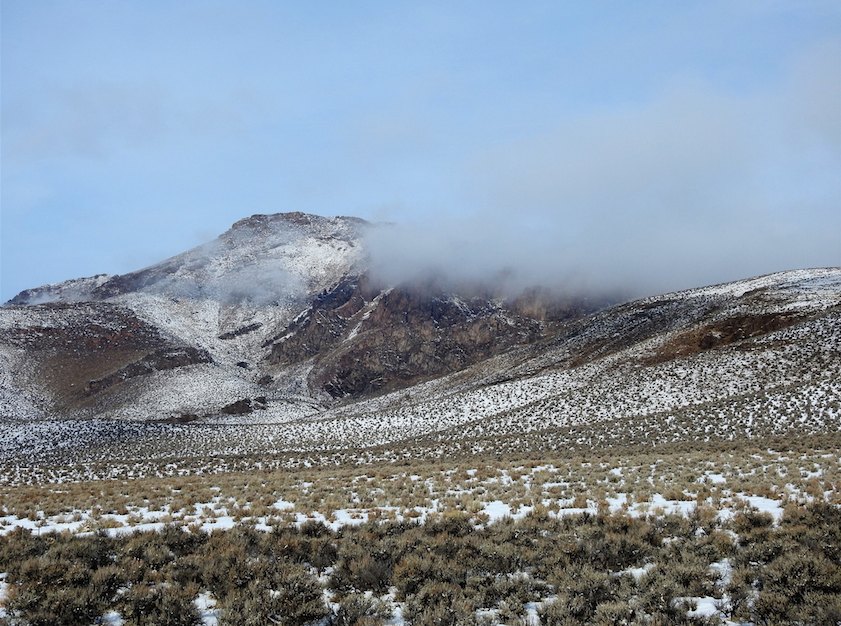A lithium deposit discovered in a volcano crater near the Nevada-Oregon border may be the world’s largest, as demand for the metal used in electronic manufacturing increases and China strives to control the market.

Thacker Pass digital image of the open-pit Lithium mine and waste rock piles. (Source: Basin and range watch)
40 Million Tons of Lithium Deposits at Thacker Pass
The crater, which formed some 16 million years ago, is thought to contain up to 40 million tons of lithium metal, according to the Royal Society of Chemistry’s monthly journal “Chemistry World,” which was published last week. The deposits at Thacker Pass are far larger than those previously thought to be the biggest in the world beneath a Bolivian salt flat. “If you believe their back-of-the-envelope estimate, this is a very, very significant lithium deposit,” said Dutch geologist Anouk Borst. Borst went on to say that it might alter the global dynamics of lithium in terms of pricing, supply security, and geopolitics.
According to BloombergNEF, China controlled 80% of the world’s raw material refining by 2020. Despite possessing just 7.9% of the world’s lithium deposits, China is the world’s third biggest lithium production, according to Forbes. Beijing has been acquiring shares in mines around the developing world in an effort to control one-third of the global lithium supply. Transportation Secretary Pete Buttigieg stated earlier this year that the United States must source more minerals such as lithium for electric vehicle batteries domestically and from friendly countries, as China directly or indirectly controls more than 60% of critical minerals required for EV batteries.
A Canadian corporation, Lithium Americas Corp., has already begun development on a mine in Thacker Pass, despite failed legal objections from environmentalists and Native American tribe leaders.
READ ALSO: Vietnam to Become a Semiconductor Chip Manufacturer

















































